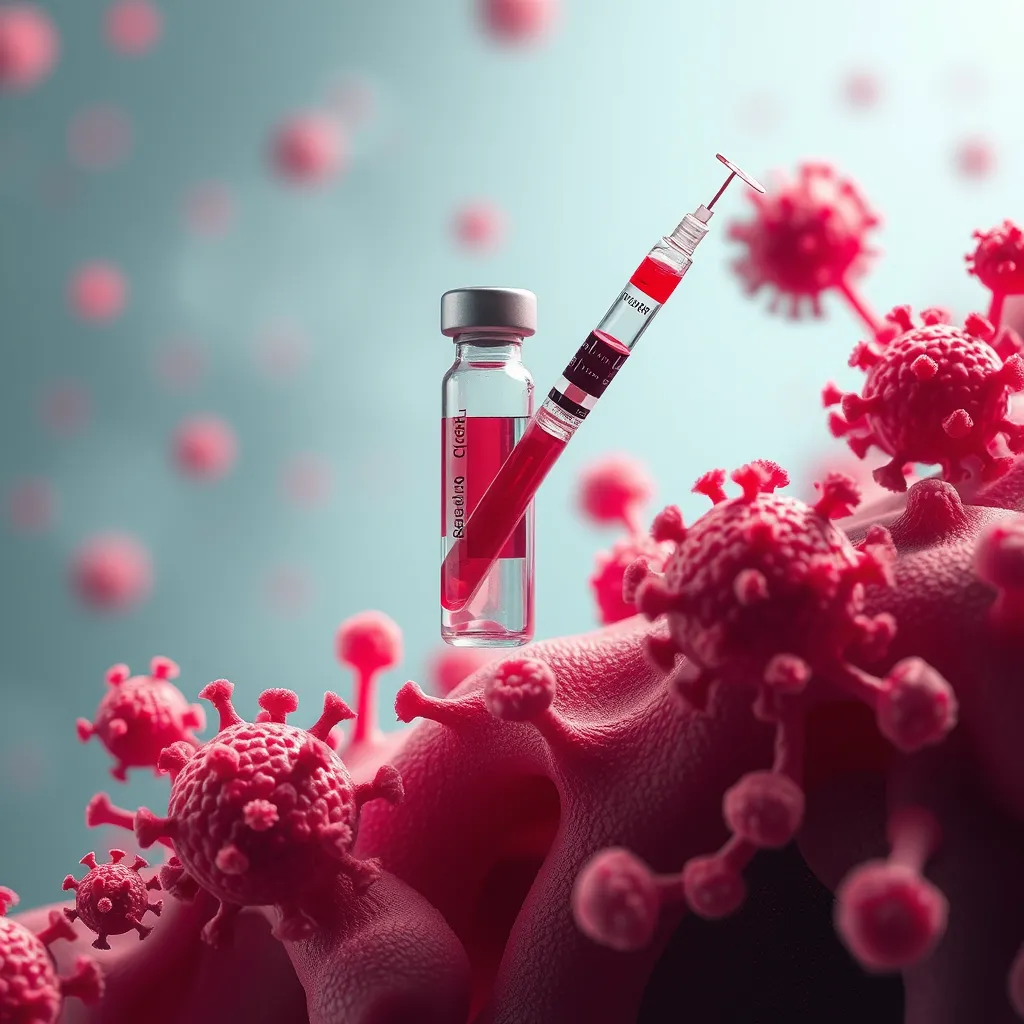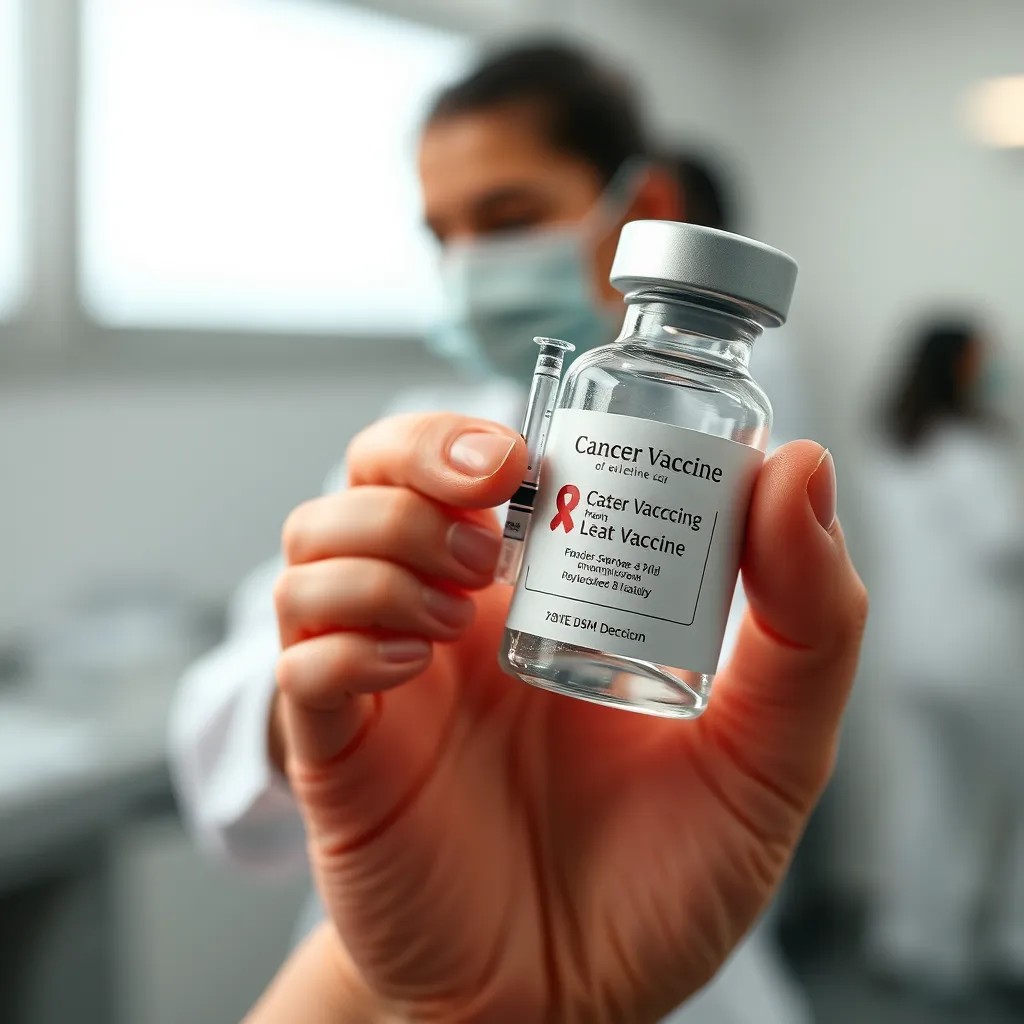
Russia Unveils Cancer Vaccine Breakthrough
Table of Contents
Cancer research has reached a monumental milestone as Russia announces the development of its own mRNA-based cancer vaccine. Expected to be launched in early 2025, this breakthrough represents a significant leap forward in the global fight against cancer. The vaccine, a product of cutting-edge technology and artificial intelligence (AI), is poised to provide new hope for millions of cancer patients worldwide.
The Role of Vaccines in Cancer Treatment
Vaccines have long been recognized as powerful tools in the fight against various diseases, including cancer. Unlike traditional vaccines that prevent infections, cancer vaccines are therapeutic—they are designed to treat cancer rather than prevent it. These vaccines work by stimulating the body’s immune system to recognize and attack cancer cells, slowing tumor growth, preventing metastasis, or even eliminating early-stage cancers.
Cancer vaccines specifically target unique proteins or antigens expressed by tumor cells, “teaching” the immune system to distinguish these cells from healthy ones. This precision makes cancer vaccines a promising tool in oncology, offering patients a personalized approach to treatment that reduces the risks of recurrence or progression

Russia’s Revolutionary Cancer Vaccine Development
Under the leadership of Andrey Kaprin, General Director of the Radiology Medical Research Center of the Russian Ministry of Health, Russia has achieved a significant breakthrough with the development of its mRNA cancer vaccine. This innovative vaccine, developed with the help of artificial neural networks, promises a personalized treatment approach and will be distributed free of charge to patients.
One of the most impressive aspects of Russia’s cancer vaccine is the speed at which it was developed. Traditionally, the creation of a cancer vaccine involves years of research and trial-and-error. However, the integration of AI has drastically shortened this timeline, allowing for rapid computation and development.
The mRNA technology used in the vaccine functions by delivering specific genetic instructions to the patient’s immune cells. These instructions “train” the immune system to recognize cancer-related antigens and mount a robust defense against them.
Artificial Intelligence: A Game-Changer in Vaccine Development
Artificial intelligence has become a cornerstone of modern medical advancements, and its application in Russia’s cancer vaccine development exemplifies its transformative potential. According to Alexander Gintsburg, Director of the Gamaleya National Research Center for Epidemiology and Microbiology, AI enables vaccine development at an unprecedented speed.
In traditional research, the process of designing a personalized cancer vaccine can take months or even years. However, with AI-powered neural networks, complex mathematical models and protein structures can be analyzed and processed within hours.
This efficiency not only accelerates the development process but also improves the precision and effectiveness of the vaccine. By using AI, researchers can identify specific tumor markers and design vaccines that are tailored to the individual patient’s genetic and immunological profile.
Pre-Clinical Trials: Promising Results
Pre-clinical trials for Russia’s cancer vaccine have yielded highly promising results. These trials demonstrated the vaccine’s ability to suppress tumor growth and prevent metastasis—critical factors in improving survival rates for cancer patients.
By harnessing the computational power of AI, researchers could simulate multiple scenarios and optimize the vaccine’s formulation. This approach ensures that the vaccine not only targets the cancer effectively but also minimizes potential side effects.
These early successes pave the way for clinical trials and subsequent distribution, bringing hope to patients who previously had limited treatment options.
What Makes Russia’s Cancer Vaccine Unique?
Several features distinguish Russia’s cancer vaccine as a groundbreaking innovation:
- Personalized Treatment: The vaccine is tailored to the genetic and immunological characteristics of each patient, ensuring maximum efficacy.
- Free Distribution: The Russian government has committed to providing the vaccine free of charge, making it accessible to patients regardless of their financial status.
- AI Integration: By leveraging AI, researchers have drastically reduced the time and cost of vaccine development while improving its precision.
- Suppression of Metastasis: The vaccine not only targets primary tumors but also works to prevent the spread of cancer cells to other parts of the body.
These features collectively position the vaccine as a major advancement in the global fight against cancer.
Implications for Cancer Treatment and Prevention
The development of Russia’s cancer vaccine has far-reaching implications for oncology. It signifies a shift toward personalized medicine, where treatments are tailored to the unique needs of individual patients. This approach could revolutionize cancer care in several ways:
- Improved Patient Outcomes: By targeting specific tumor markers, the vaccine enhances the immune system’s ability to fight cancer, reducing recurrence rates and improving survival chances.
- Cost-Effective Care: Free distribution ensures that financial barriers do not prevent patients from accessing life-saving treatments.
- Global Collaboration: Russia’s breakthrough could inspire other countries to invest in similar technologies, fostering international collaboration in cancer research.
- Prevention of Early-Stage Cancers: By attacking cancer cells in their early stages, the vaccine has the potential to eliminate tumors before they grow and spread.
Cancer Vaccines: A Beacon of Hope
Cancer vaccines are emerging as one of the most promising tools in oncology. They offer several advantages over traditional treatments, such as chemotherapy and radiation, which often come with significant side effects.
- Targeted Action: Unlike chemotherapy, which affects both cancerous and healthy cells, vaccines specifically target cancer cells, sparing healthy tissue.
- Lower Toxicity: Patients experience fewer side effects compared to conventional treatments, improving their quality of life.
- Long-Term Protection: Vaccines “train” the immune system to remember and attack cancer cells, offering long-term immunity against recurrence.
The development of Russia’s cancer vaccine adds to this growing arsenal, bringing renewed hope to patients and their families.
Looking Ahead: The Future of Cancer Vaccines

The launch of Russia’s cancer vaccine in 2025 could mark the beginning of a new era in cancer treatment. As the vaccine undergoes clinical trials and becomes widely available, it will provide invaluable insights into the effectiveness of mRNA technology and AI in oncology.
Moreover, this breakthrough could inspire further innovations, such as combination therapies that pair cancer vaccines with immunomodulatory drugs or checkpoint inhibitors. These combinations could enhance the immune system’s ability to fight cancer, leading to even better outcomes.
Additionally, the success of Russia’s vaccine could pave the way for the development of vaccines targeting other types of cancer, expanding the reach of this life-saving technology
Conclusion: A Milestone in Cancer Research
Russia’s development of an mRNA-based cancer vaccine is a groundbreaking achievement that underscores the power of innovation in medical science. By integrating AI into vaccine development, researchers have revolutionized the way cancer is treated, offering a faster, more precise, and cost-effective solution.
This vaccine represents more than just a medical breakthrough—it symbolizes hope for millions of patients worldwide. With its launch in 2025, the world will witness the impact of personalized medicine and the transformative potential of AI in healthcare.
As cancer continues to be one of the leading causes of death globally, advancements like Russia’s cancer vaccine bring us one step closer to a future where cancer is no longer a life-threatening disease. For patients, families, and healthcare providers, this vaccine is a beacon of hope, promising better outcomes and a brighter future.
